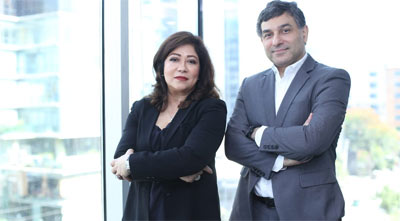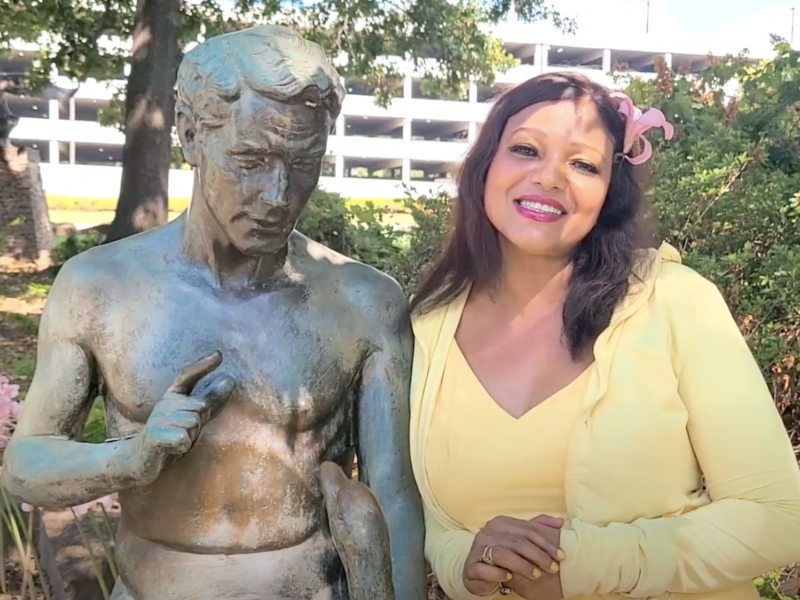Hong Kong’s economy officially fell into recession in the third quarter after enduring nearly five months of protests and a persistent trade war between the United States and China.
The economy dropped by 3.2% in the three months ending in September compared with the quarter that ended in June, Hong Kong officials said on Thursday. It was the worst economic performance for the city since the global financial crisis a decade ago and the strongest signal yet of the damage caused by political unrest.
“The blow to Hong Kong economy is multifaceted,” Paul Chan, the city’s financial secretary, wrote in a blog post. He said that a full year contraction was also “very likely.”
The performance marked the second consecutive quarter that the territory’s economy shrank, meeting the formal definition of a recession. In the quarter that ended in June, the economy contracted 0.4% from the first three months of the year.
Weekends in Hong Kong are now punctuated with public transport shutdowns, road blockages and the early closure of the malls and the luxury stores that were once part of the engine that keeps the city humming.
Tourists that traveled to Hong Kong from mainland China to fill their empty suitcases are almost all gone. During China’s main holiday week in early October, visitors plummeted by 55% from the year before.
Hong Kong’s growth has also been buffeted by a protracted trade war between China and the United States and is part of a broader global economic slowdown that has raised fears of recession in other major economies, including Germany and Britain.
In a vague but potentially far-reaching proposal, the Chinese Communist Party announced Thursday that it would roll out new steps to “safeguard national security” in Hong Kong. Details may emerge in the weeks ahead, but the protests continued on Thursday, with demonstrators using Hong Kong’s Halloween demonstrations to challenge a recent ban on masks at public gatherings.
Early on Thursday evening, the mood in Lan Kwai Fong, a rowdy night life district known for its booze-soaked Halloween parties, was noticeably muted. While the streets were still filled with revelers in costumes, compared to years past there were fewer Halloween decorations and more security and journalists.
At around 7 pm, dozens of protesters wearing masks of government leaders like Xi Jinping and Carrie Lam gathered in the district. Amid blaring music from nearby bars, the protesters began shouting slogans like “Fight for freedom, stand with Hong Kong.”
Not long after, a tense standoff formed between police and protesters. Officers soon declared the gathering an unlawful assembly and took the nearly unprecedented step of ordering an immediate evacuation of the district.
Later in the evening, with the area blocked off, a reveler dressed as Snow White could be seen coughing in the tear gas as tourists took selfies.
The night included multiple clashes between protesters and police elsewhere around the city. Police fired canisters of tear gas at protesters outside the Mong Kok police station in the Prince Edward district, and later in the heart of the central business district, which includes Lan Kwai Fong.
The protest movement began as a fight over a now-withdrawn extradition bill and has expanded its demands to include free elections and an independent investigation into the police’s use of force. But after agreeing to withdraw the extradition bill, the government has since then refused to budge on the other demands, summed up by protesters under the slogan “five demands, not one less.”
Under mounting pressure to take action, Hong Kong’s embattled leader, Carrie Lam, drew on a colonial-era law to ban face masks at public gatherings. The move set off some of the most violent protests since the movement began in June. Pan-democratic lawmakers say the ban is unconstitutional since it was introduced without going through the normal legislative process. On Thursday, the High Court began a two-day hearing to review the lawmakers’ requests to overturn the emergency law.
Dozens of protesters have since been arrested on charges of violating the prohibition. But enforcement has been uneven. Face masks have long been a common accessory in Hong Kong, particularly since a deadly SARS outbreak in the city in 2003, and there has also been confusion about what constitutes a public gathering. The ambiguity has provided cover for some protesters to defy the ban.
Leading up to Halloween night, preparations were being made in anticipation of clashes. In a statement on Tuesday, police warned of possible road closures and urged shops to close early if necessary. In a video released Thursday afternoon, a police spokesman sought to pre-empt criticism by stating that officers were empowered to use force to remove facial coverings, if necessary.
Ocean Park, the city’s largest theme park, announced on Wednesday that it was canceling the last day of its signature seasonal event, Halloween Fest, citing the “current social situation.” The MTR Corp., the Hong Kong subway operator, also announced that it was shutting train service down early, ostensibly to deter protesters from taking to the streets.
Prince Edward Station, near one of the busiest shopping districts on the Kowloon Peninsula, was shut down the earliest, at 2 p.m., apparently in response to calls among protesters to gather Thursday at the station, the site of a particularly violent confrontation between police and protesters exactly two months ago. Protesters are still angry about that night after video footage showed riot officers charging into a waiting subway carriage and beating people with batons and dousing them with pepper spray.
The announcement on Thursday about the city’s recession came as no surprise to bar employees in Lan Kwai Fong, which has seen business plummet in recent months.
“The locals are pretty terrified of coming out, the mainlanders used to give us a lot of business but they’re not here anymore, and the tourists aren’t showing up anymore either,” said Paul Pecas, a bartender at a bar in Lan Kwai Fong bar called Tipsy Bird.
Pecas said that business at the bar had dropped by 50% this month compared with last October, which is typically the peak month for customers. Two of Tipsy Bird’s sister bars, he said, had been shut down in recent months because of the protests.
“I have nothing against anyone,” Pecas said. “I’m just terrified of losing my job.”





















